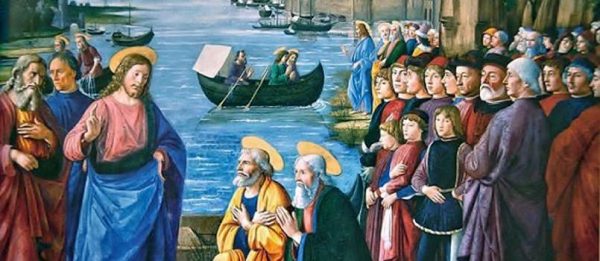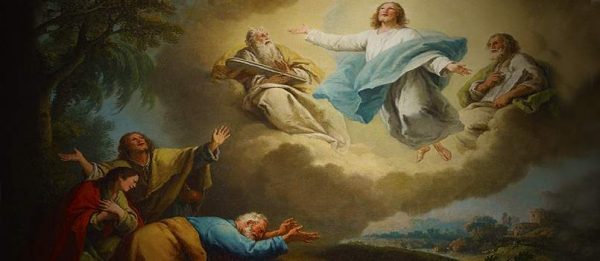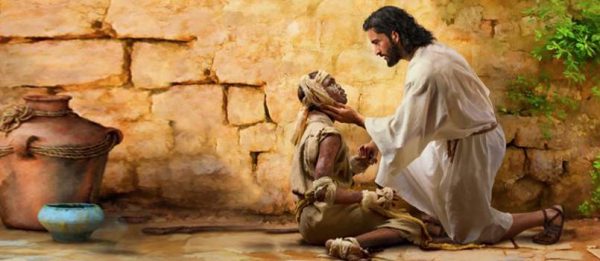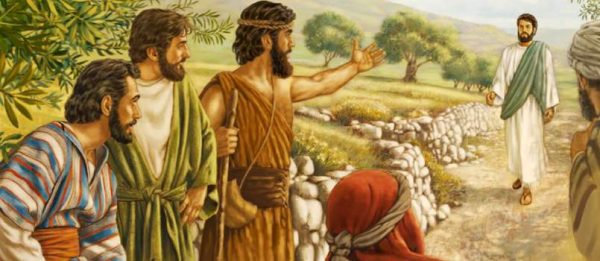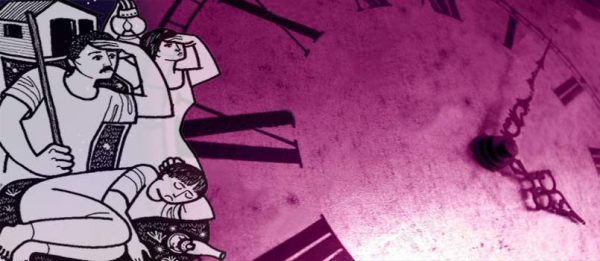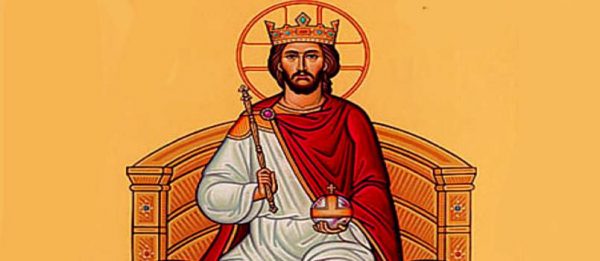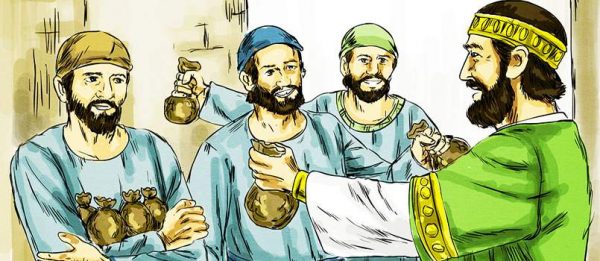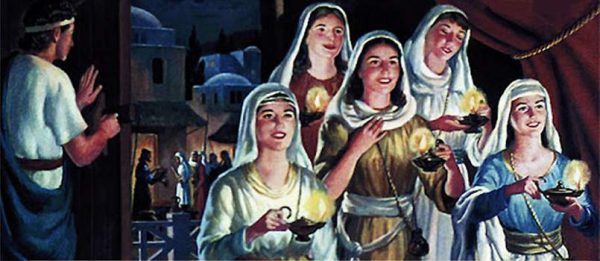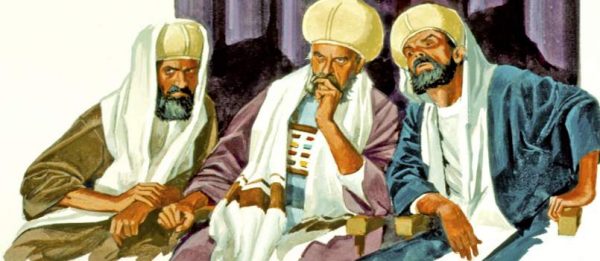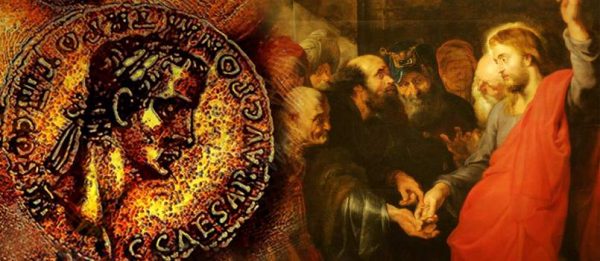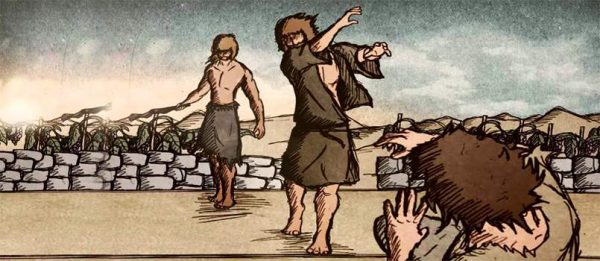10,366 total views
The Lord Is My Chef Sunday Recipe, Easter -5B, 29 April 2018
Acts 9:26-31//1John 3:18-24//John 15:1-8
My former student recently posted on her Facebook a billboard saying, “GIVE ME COFFEE FOR THE THINGS I CAN CHANGE & TEQUILA FOR THOSE I CAN’T”. It is a funny take from “Serenity Prayer” that says, “Lord, give me the serenity to accept the things I cannot change; courage to change things I can; and wisdom to know the difference.” But I find the FB post of my former student still a beautiful prayer we can recite especially on weekends. If you want it to be safer or sober, have wine instead of tequila. Amen? Cheers!!!
Wine is a very important commodity in Europe and the Mediterranean region where Israel is. Every meal and celebration always have wine because it symbolizes life as it awakens our senses, warms the body and gladdens the heart. Like water, bread, and olive oil, wine is a liturgical sign in the Church due to its extensive uses since the Old Testament and by the Lord Himself. In fact, Jesus Christ’s first miracle or “sign” according to St. John was the changing of water into wine at the wedding feast at Cana. Interestingly enough, before Christ did His most important “sign” at His “hour” which is dying on the Cross for our salvation on Good Friday, a few days before His last supper He declared this to His disciples: “I am the true vine, and my Father is the vine grower. He takes away every branch in me that does not bear fruit, and every one that does he prunes so that it bears more fruit. You are already pruned because of the word that I spoke to you. Remain in me, as I remain in you. Just as a branch cannot bear fruit on its own unless it remains on the vine, so neither can you unless you remain in me. I am the vine, you are the branches. Whoever remains in me and I in him will bear much fruit, because without me you can do nothing.”(Jn. 15:1-5)
In the synoptic gospels we find how Jesus Christ lamented over Israel that has long been considered as “the vineyard of God” was plundered and taken over by wicked tenants. In the Old Testament we have God speaking through the Prophet Isaiah feeling so sad at Israel His vineyard producing sour grapes despite the special care He had given it. When Jesus declared in the gospel that “I am the true vine,” Jesus is now telling us something deeper, a transition that Israel is no longer the vineyard of God because His Son had come to us. Jesus Christ’s “I AM” evokes God in the Old Testament who identifies Himself as “I AM WHO AM.” Jesus the Son of God, the Second Person of the Trinity, true God and true Man is now in our midst! His “I am the true vine” is a beautiful expression of His incarnation, His being planted in our midst that no one could plunder or take away. It is the grace-filled kindness and love of God to finally be with us in Person. This is why Jesus used the qualifier “true vine” – there is no other God except Him. And the good news is that He is no longer far from us found in the heavens or top of the mountain but living among us, exactly like us except in sin. As the Emmanuel “God-with-us, in Christ Jesus God has come closest to us as the vine and the branches are. Finally, man who has always separated himself from God is now one with Him again, a part of God no one could separate. This explains why Jesus had to repeat “I am the vine you are the branches.” There is that sense of irrevocability of God’s gift of His Son to us that perfectly fits St. Paul’s theology of the body with Jesus as head and we are the different parts like hands and legs. Here we find a deepening of that oneness of the Good Shepherd and the sheep last week.
With Jesus Christ as the vine with us as branches, the Lord is reminding us of our great responsibility to remain in Him to be fruitful because without Him, we are nothing. To remain in the Lord, to stay with Him means there would always be pruning or purification for us to be fruitful, to be with Him in His pasch. Not all days are bright and shiny in the vineyard; there are times when skies are dark with heavy rains and some gusty winds. There are nights that could be so cold, even very dark and very long. Worst of all, to be pruned means to go through many pains and hurts as well as sacrifices like the Lord to be fruitful. In recent weeks we have been reflecting that the joy of Easter is always preceded by darkness and losses. In the first reading we have heard how the Apostles and early Christians doubted and could not trust St. Paul after his conversion when he first came to join them in Jerusalem. So often, we are like St. Paul when we find God’s initiatives very disconcerting when after finally giving our “yes” to follow Him, problems arise like non acceptance and doubts by others, or sickness in the family and disagreements and many constraints from those above us at home, in the office and even in the Church. These are grace-filled moments because when we encounter resistance or problems in doing God’s work, these are actually the very things that prune or purify us to continue seeking and following Him. and His Holy Will. Let us be consoled and assured once again by the beloved disciple in the second reading who calls us to remain in Christ Jesus our true vine especially when we are being pruned: “God is greater than our hearts and knows everything.”(1Jn.3:20)
When we remain in Jesus especially in times of trials and difficulties, we learn to be humble and merciful, understanding and kind with others especially the difficult ones. Slowly without us knowing it, we become like Jesus Christ: fruitful in love. Love is the fruit of Jesus Christ our true vine. When He offered Himself on the Cross, love was His fruit. When He established the Eucharist on HolyThursday to give Himself to us as Body and Blood under the signs of bread and wine, love is its fruit. Every time we die in our selves, in our pride, when we are pruned, we also give our very selves like Him in love. As we grow in love, the more we become fruitful, the more we have to remain in Christ and the more we are pruned by the Father. In that way, it becomes very clear that in our love, every achievement, every effort, everything is the work of God and not by us. Being fruitful is relying more on the power of God than on our own abilities like success. Success does not ensure fruitfulness because even if we have everything in the world, life can still be incomplete without love. On the other hand, we can be fruitful amid many failures as we remain in Christ who fills us with much love, peace and joy. A fruitful week ahead for everyone! Amen.
Fr.Nicanor F. Lalog II,
Parokya ng San Juan Apostol at Ebanghelista,
Gov. F.Halili Ave., Bagbaguin, Sta. Maria, Bulacan3022













